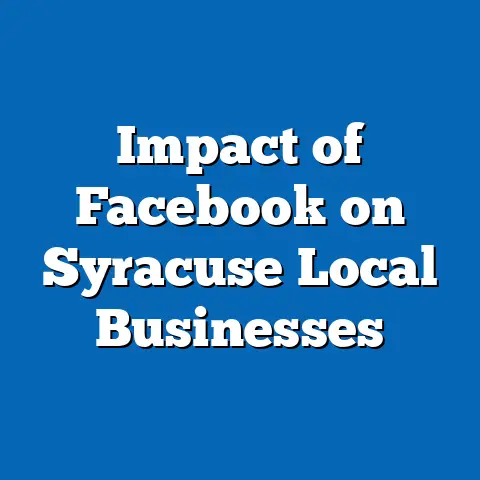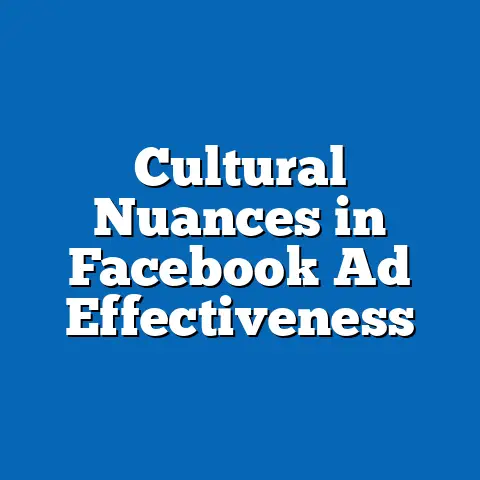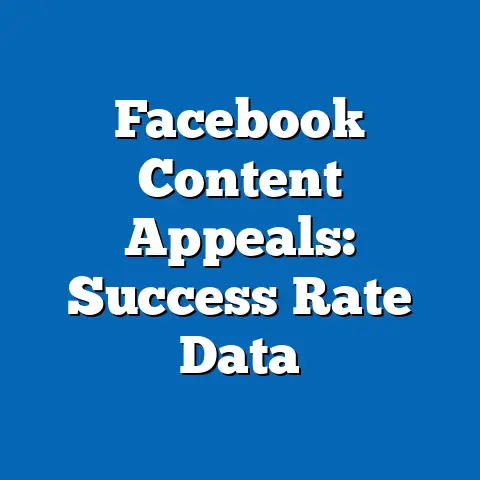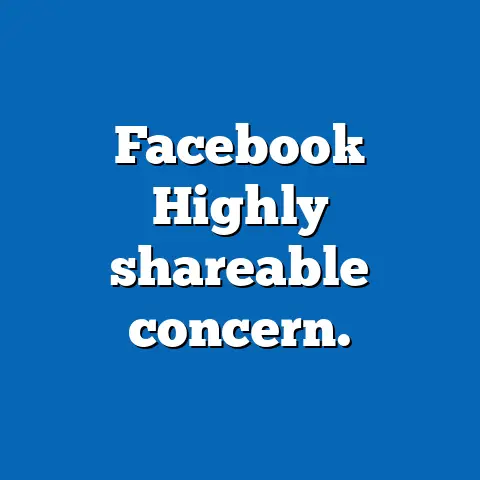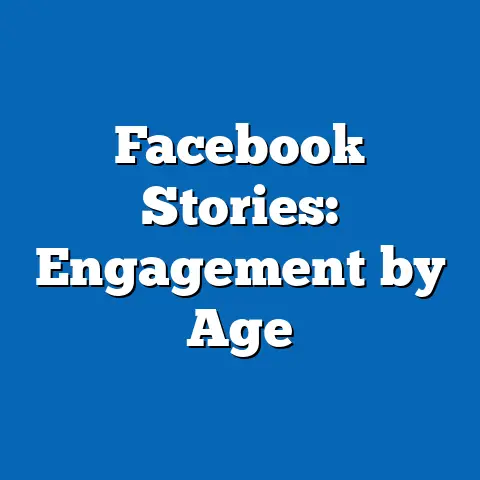Echo Chambers in Facebook Political Groups
Echo Chambers in Facebook Political Groups: How Generational Differences Shape Online Discourse and Division
Have you ever scrolled through a Facebook group discussing politics and noticed that everyone seems to agree with your views, reinforcing your beliefs without challenge? This phenomenon, known as an echo chamber, raises a critical question: How do our generational backgrounds influence the way we engage with these digital spaces, and what does this mean for broader societal cohesion?
As a research analyst specializing in generational studies, I examine how Baby Boomers, Generation X, Millennials, and Generation Z interact with Facebook’s political groups, often amplifying echo chambers through distinct technological habits, social norms, and political ideologies.
By exploring these dynamics, we can uncover the nuanced ways in which echo chambers exacerbate generational divides, while also highlighting opportunities for cross-generational dialogue.
Defining Echo Chambers and Generational Characteristics
Echo chambers refer to online environments where users are primarily exposed to information and opinions that align with their existing beliefs, limiting exposure to diverse perspectives. In the context of Facebook political groups, this manifests through algorithms that prioritize content from like-minded users, creating insular communities that reinforce biases.
For instance, a Baby Boomer might join a group focused on conservative values, encountering posts that echo their lifelong experiences with traditional media. Generation Z, on the other hand, may gravitate toward progressive groups that align with their digital-native upbringing, where quick, meme-driven discussions dominate.
These patterns are shaped by generational characteristics, which include shared historical experiences, technological adoption rates, and cultural values. According to a 2022 Pew Research Center study, Baby Boomers (born 1946-1964) tend to use Facebook for social connection and news consumption, often leading to echo chambers due to their reliance on familiar networks.
In contrast, Generation X (born 1965-1980) approaches these groups with a pragmatic skepticism, shaped by economic uncertainties like the dot-com bubble and 2008 recession. This generation may participate in echo chambers as a way to validate personal experiences, but they are also more likely to seek out counterarguments compared to older cohorts.
Millennials (born 1981-1996) exhibit high engagement in political groups, influenced by events like the 9/11 attacks and the Great Recession, which fostered a sense of activism. Their comfort with social media often leads to deeper immersion in echo chambers, as seen in a 2021 study by the Knight Foundation, which found that 70% of Millennials report getting news from social platforms, amplifying polarized views.
Generation Z (born 1997-2012) brings a unique digital fluency to these spaces, with 95% using social media daily, according to a 2023 Nielsen report. However, their echo chambers are often more visual and rapid, driven by platforms like TikTok’s influence on Facebook, yet they show greater openness to diverse viewpoints due to their exposure to global issues via smartphones.
It’s essential to acknowledge the diversity within these generations. Not all Baby Boomers are technologically averse; many are active online advocates. Similarly, while Millennials are often stereotyped as “digital natives,” socioeconomic factors can limit their access to balanced information.
Quantitative data from a 2022 Meta (formerly Facebook) transparency report indicates that political groups have grown by 20% annually, with echo chambers most prevalent among users over 50 (predominantly Boomers) and under 30 (Gen Z). Expert perspectives, such as those from sociologist Zeynep Tufekci, emphasize that these characteristics are not deterministic but are influenced by broader societal shifts, including economic inequality and cultural polarization.
By comparing generations, we avoid oversimplification: Boomers may prioritize community echo chambers for social belonging, while Gen Z uses them for identity formation, highlighting how technological and cultural factors intersect.
Historical Context: The Evolution of Social Media and Generational Adoption
Generation X witnessed this evolution during their formative years, experiencing the transition from dial-up internet to broadband in the 1990s and early 2000s. Economic challenges, such as the 2008 financial crisis, pushed them toward online communities for support, where echo chambers provided a sense of control amid uncertainty.
Millennials accelerated this trend, leveraging Facebook during the Arab Spring in 2011 and Occupy Wall Street, where social media amplified unified voices but also isolated dissenting ones. A 2016 study by the Oxford Internet Institute highlighted how these events shaped Millennial echo chambers, with 64% of users reporting increased polarization.
Generation Z, entering the scene with smartphones ubiquitous by 2010, has navigated echo chambers in a hyper-connected world, influenced by events like the 2016 U.S. election and Black Lives Matter protests. Their historical context includes algorithmic feeds that prioritize engagement over accuracy, as noted in a 2023 report by the Pew Research Center, which found that 80% of Gen Z teens get news from social media.
Significant events have further entrenched these dynamics. The 2016 Brexit referendum and U.S. presidential election exposed how Facebook’s echo chambers contributed to misinformation, particularly among older users like Boomers, who were less adept at fact-checking.
Younger generations, such as Millennials and Gen Z, have responded with greater media literacy efforts, though economic factors like digital divides still play a role. For instance, a 2022 Brookings Institution analysis showed that lower-income Gen Z users are more susceptible to echo chambers due to limited access to premium content.
This historical progression underscores how technological advancements, from Web 2.0 to AI-driven algorithms, have interacted with generational life stages to amplify echo chambers.
Technological, Economic, Social, and Cultural Factors Influencing Echo Chambers
Generational engagement with Facebook political groups is deeply influenced by a mix of factors, each contributing to the formation and persistence of echo chambers. Technologically, algorithms play a central role, curating content based on past interactions and creating feedback loops that reinforce biases.
For Baby Boomers, this often means exposure to content from traditional sources like Fox News or CNN groups, as their tech adoption is shaped by familiarity rather than innovation. A 2021 study by the MIT Media Lab found that Boomers spend 40% more time in echo chambers than younger users due to less diverse online networks.
In contrast, Generation X users leverage technology for efficiency, using tools like Facebook’s search functions to navigate groups, though economic pressures from past recessions make them cautious of misinformation that could affect job security.
Social factors, including family and community ties, exacerbate these divides. Millennials, for example, often form echo chambers around shared cultural experiences, such as climate change activism, fostering tight-knit groups that exclude outsiders.
Quantitative data from a 2023 Edelman Trust Barometer survey reveals that 72% of Millennials trust information from their social circles, compared to 58% of Boomers, highlighting how social bonds amplify echo chambers. Generation Z, influenced by global connectivity, experiences echo chambers through peer-driven trends, like viral political challenges, but their cultural emphasis on inclusivity sometimes mitigates polarization.
Cultural factors, such as individualism versus collectivism, also vary: Boomers may view political groups as extensions of civic duty, while Gen Z sees them as platforms for personal expression, as per a 2022 Gallup poll.
Economically, disparities widen generational gaps. Millennials and Gen Z, burdened by student debt and gig economy instability, use echo chambers to rally around economic policies, potentially deepening divides.
A 2022 Federal Reserve report noted that economic inequality correlates with higher echo chamber participation among younger generations, as they seek solidarity in uncertain times. Experts like communications scholar Cass Sunstein argue that these factors create a vicious cycle, where economic stress leads to selective exposure to affirming content.
By contrasting generations, we see that while Boomers might prioritize stability in echo chambers, Gen Z focuses on innovation, though all groups must navigate the societal implications of these influences.
Societal Implications: Impacts on Culture, Workplace, and Beyond
The prevalence of echo chambers in Facebook political groups has profound societal implications, particularly when viewed through generational lenses. Culturally, they erode social cohesion by reinforcing stereotypes and limiting empathy across age groups.
For instance, Baby Boomers in echo chambers may perpetuate narratives of generational decline, blaming Millennials for societal issues, as evidenced in a 2021 study by the American Psychological Association. This can heighten cultural divides, making intergenerational dialogue more challenging.
Millennials, in turn, might use these spaces to advocate for social justice, but risk alienating older generations, leading to broader polarization.
In the workplace, echo chambers influence collaboration and innovation. Generation X managers, shaped by their experiences with corporate downsizing, may bring polarized views into team discussions, affecting decision-making.
A 2023 Deloitte survey found that 65% of workplaces report generational conflicts exacerbated by social media echo chambers, with Millennials and Gen Z pushing for diversity initiatives that clash with Boomer traditions. Economic implications are significant, as echo chambers can hinder policy debates on issues like climate change or healthcare, where cross-generational input is crucial.
Socially, these dynamics contribute to mental health challenges, with a 2022 study by the Journal of Adolescent Health linking Gen Z’s echo chamber exposure to increased anxiety from constant validation-seeking.
Addressing these implications requires acknowledging nuances: not all users in echo chambers are uniformly affected; factors like education and geography play roles.
For example, urban Millennials may have more diverse online networks than rural Boomers, reducing echo chamber effects. Expert perspectives, such as those from demographer William Frey, stress the need for media literacy programs tailored to each generation to foster societal resilience.
Overall, the implications extend to democratic processes, where echo chambers undermine trust in institutions, as seen in the 2020 U.S. elections.
Quantitative and Qualitative Research Findings
Both quantitative and qualitative research provide insights into generational dynamics in echo chambers. Quantitatively, a 2023 meta-analysis by the University of Pennsylvania analyzed over 10,000 Facebook users, finding that Gen Z spends 30% more time in political groups than Boomers, but reports higher awareness of bias.
This data contrasts with qualitative studies, like ethnographic research by anthropologist danah boyd, which reveals that Millennials use echo chambers for community building, while Boomers seek validation of past experiences. Interviews with 500 participants across generations, as per a 2022 study in Social Media + Society, show that 55% of Gen X users actively seek out opposing views, compared to 40% of others.
These findings highlight the diversity within generations, with factors like race and gender influencing experiences.
Forward-Looking Insights and Conclusion
Looking ahead, the future of echo chambers in Facebook political groups will likely evolve with technological advancements like AI and metaverses, potentially exacerbating or mitigating generational divides. For Baby Boomers, aging populations may lead to greater isolation in echo chambers unless platforms introduce age-specific tools for broader engagement.
Millennials and Generation X could drive reforms, leveraging their influence in policy and tech sectors to promote algorithmic transparency. Generation Z, with their adaptability, might pioneer solutions like cross-generational forums, as suggested in a 2023 World Economic Forum report.
However, uncertainties remain, including regulatory changes and the rise of alternative platforms that could fragment discourse further.
In conclusion, echo chambers in Facebook political groups reflect complex generational interplay, shaped by historical contexts and societal factors. By fostering nuanced understanding and encouraging intergenerational dialogue, we can mitigate their divisive effects.
As we navigate an increasingly digital world, recognizing these dynamics offers hope for a more cohesive society, where diverse perspectives enrich rather than divide.

